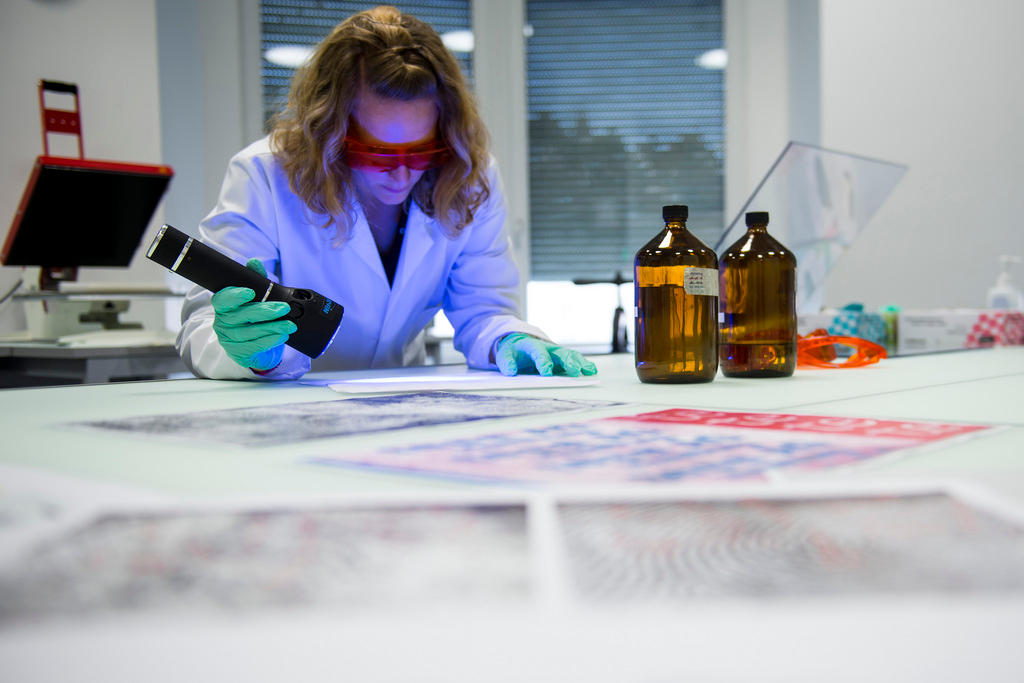
Analysis of soil chemicals and parasites sheds light on unsolved murder

A research team led by the University of Neuchâtel has used new methods of dating, including the analysis of mites and Carbon-14 in a decomposed human body, to make headway in a previously unsolved Swiss murder case.
The body was discovered a decade ago, partially-burnt, in a low-lying forest of the Swiss Central Plateau. However, the state of decomposition and damage to the corpse complicated identification.
Now, researchers from Swiss, British, and Spanish universities have managed to analyse not only Carbon-14 levels in bones and hair, but also the number and type of micro-organisms and chemicals found in the soil around the body, to shed more light on the case.
+ Read about more innovations in our Switzerland Discovers portal
Their investigations – the first time the analysis of parasites and eukaryotic organisms has been brought to bear in a homicide case – have enabled the body to be identified as that of a young man last seen almost two years before the discovery.
They also determined that the body had been at its final resting place for at least a year, but that it had previously been kept in a confined location (such as a bag) for 8-12 months before being moved to the forest.
The analysis, based on over 800 samples of decomposed matter since 2009, was part of a doctoral research project being run at the University of Neuchâtel, and was helped by previous analysis of decomposing animals.
“We developed the methods by studying the decomposition of pig corpses in forests,” explained laboratory director Edward Mitchell. “We thus built up complementary information that allowed us to establish a diagnostic.”
The investigation remains ongoing as police struggle with further unknowns about the young man’s disappearance.
swissinfo.ch and agencies/dos

In compliance with the JTI standards
More: SWI swissinfo.ch certified by the Journalism Trust Initiative






























You can find an overview of ongoing debates with our journalists here . Please join us!
If you want to start a conversation about a topic raised in this article or want to report factual errors, email us at english@swissinfo.ch.